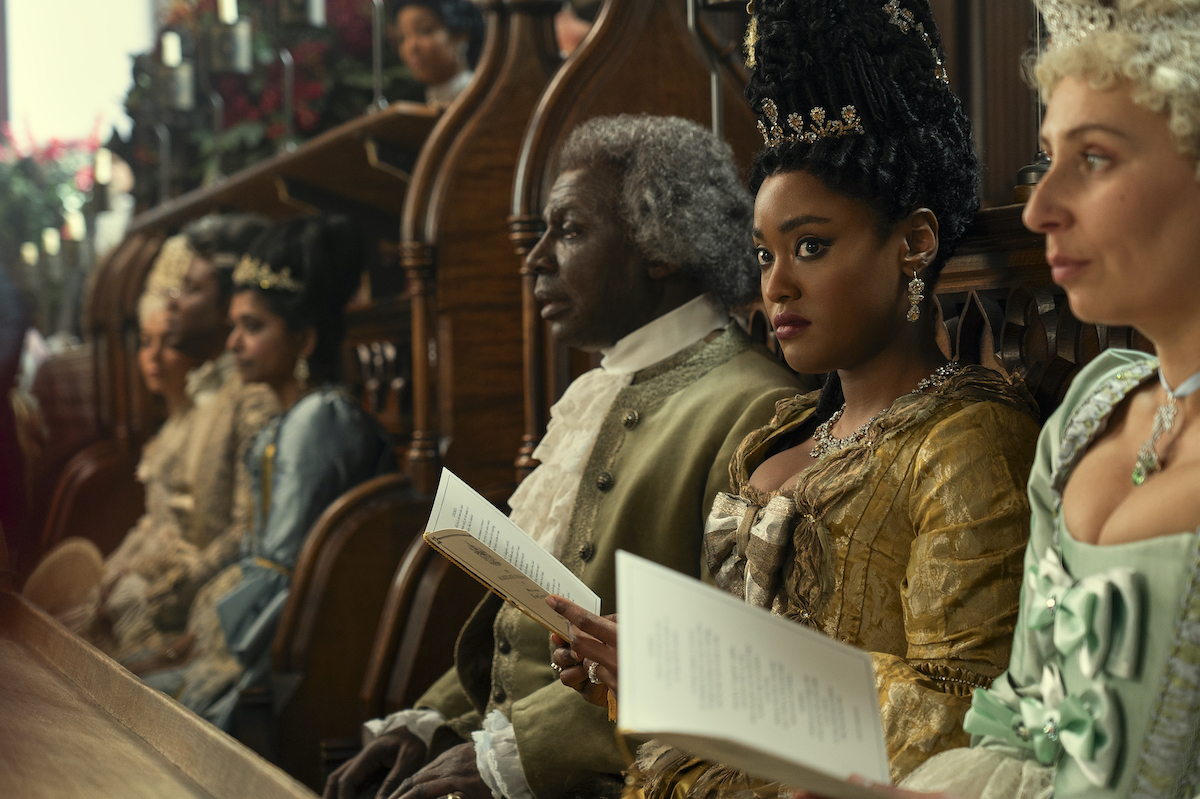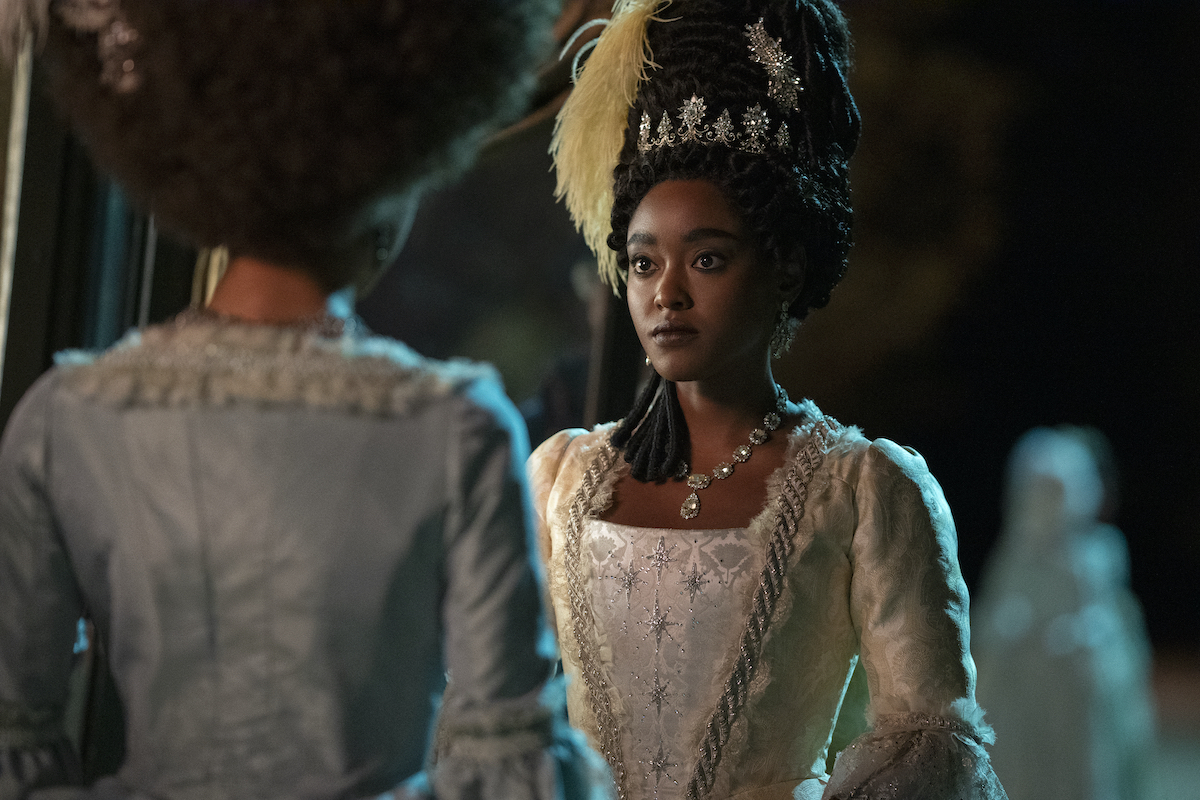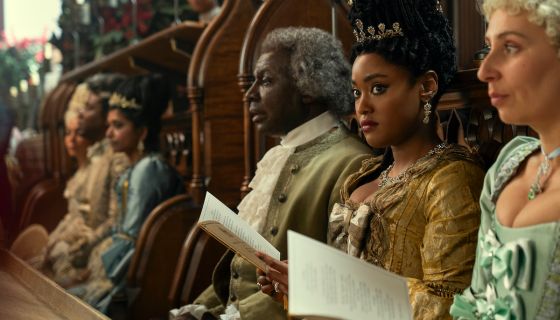If you haven’t watched all of Queen Charlotte: A Bridgerton Story yet (what’s taking you so long?) there may be a few little spoilerish moments ahead. Fair warning!

Source: Courtesy / Netflix
Fans of the Netflix Bridgerton series have been immersed in the complicated back story of the Queen in her younger days as she marries, then falls in love with King George III. While this part of the series stays true to historical record — one of our favorite characters Lady Agatha Danbury, is not a historical figure, but a character in the Julia Quinn series of Regency novels that inspired the Netflix show. In the last four years, Lady Danbury has been one of the most important characters in all three Netflix releases. Similar to Charlotte, Queen Charlotte: A Bridgerton Story gives us the opportunity to learn so much about how she became the fierce older version (played by Adjoa Andoh) through her back story, where she’s portrayed by Arsema Thomas.
In an interview ahead of the premiere of Queen Charlotte: A Bridgerton Story actress Arsema Thomas spoke with BOSSIP about Lady Danbury finding her power and choosing herself.
“I think there’s something interesting about Danbury where she maybe didn’t realize what was happening was power, she just knew that something was wrong,” Arsema Thomas told BOSSIP. “I think there’s something about being in opportunities where you have no choice but to exert that power. I think that’s a lot of the situations that she starts to find herself in. She’s like, ‘If I don’t say anything then I might as well be dead.’ You see her start to do the calculations in her mind where the only option she has is to start to use her power or to at least help other people step into their power and I think that’s also where the basis of that friendship with Charlotte also comes from.”

Source: Courtesy / Netflix
After the death of Lord Danbury, we see Lady Danbury being courted by Charlotte’s brother, Duke Adolphus — who eventually proposes to her. While many in her position might not have hesitated to accept the proposal, which would have solved any financial problems she was facing, we watch Lady Danbury struggle with her decision. Ultimately Danbury chooses her independence, which Thomas says was something about her character she related to greatly.
“I think there was, I mean I think that’s the way that I have normally been,” Thomas told BOSSIP. “It’s the way that I was raised. My parents are the type of people who told me like, ‘Get your PhD before you ever start dating.’ And I was like, ‘OK so I’m going to be a spinster.’ Also my mother was the one working all of my life, so I only knew that women could stand on their own and men were always like, in a heterosexual relationship, men were always just an accessory.”
“I think think there is something really amazing about playing a woman who didn’t know that at the beginning,” Thomas continued. “You know from three-years-old to be groomed for a man, is essentially not recognizing that you have a choice, and the moment that she realizes that, she would rather be alone than be comfortable because she has the option really to just find herself into another marriage. It wasn’t common, but she could. She again does the thought process, realizing what she actually wants her herself, no one else, and I think that is something that is so difficult. It’s such an easy thing to ask what do you want and to answer something but really when you think about what you truly need without the influence of anybody else, it’s an actually extremely difficult question to answer and I think it’s what she’s trying to answer over the six episodes and come the last one she’s like I now know I wanna be alone.”
For the folks who’ve been watching — did you applaud Lady Danbury’s decision? Or did you wish she ended up with Adolphus?
One thing we love about Queen Charlotte on Netflix is the way the show uses orchestral versions of modern music. We asked Arsema what song she’d choose to represent her and she chose “No Merci” by Little Simz.
Source link

